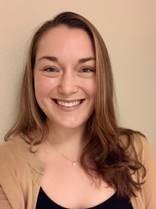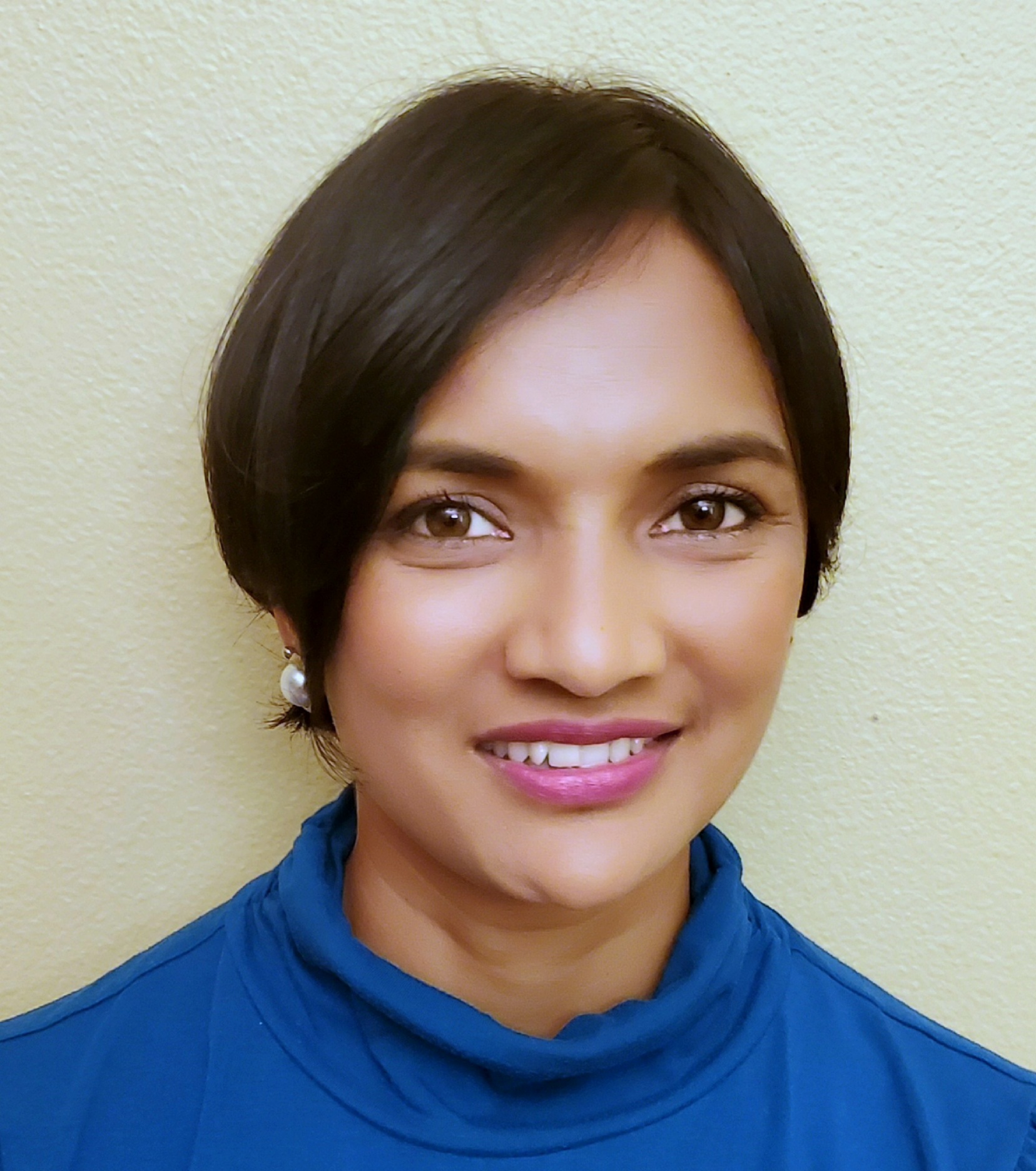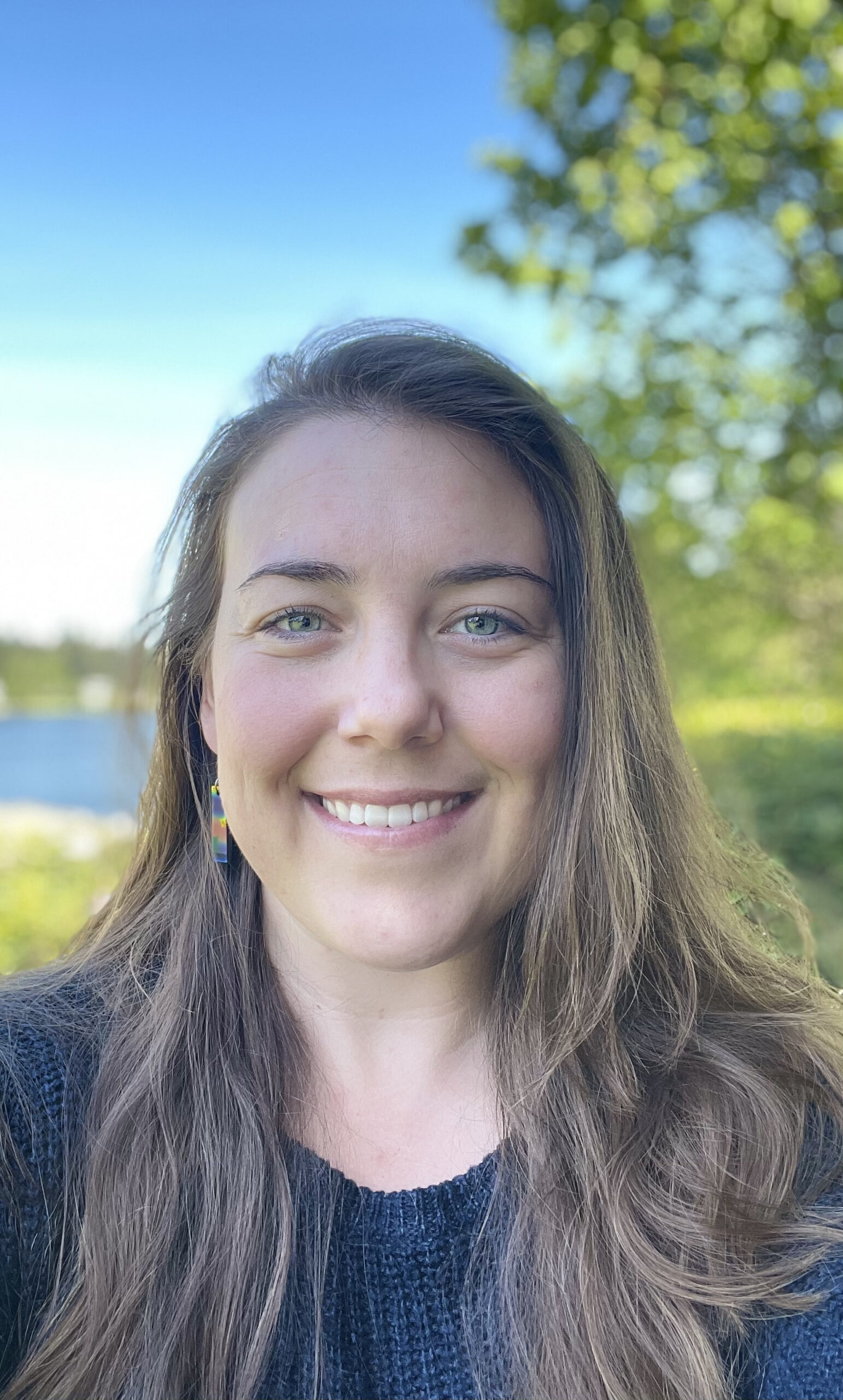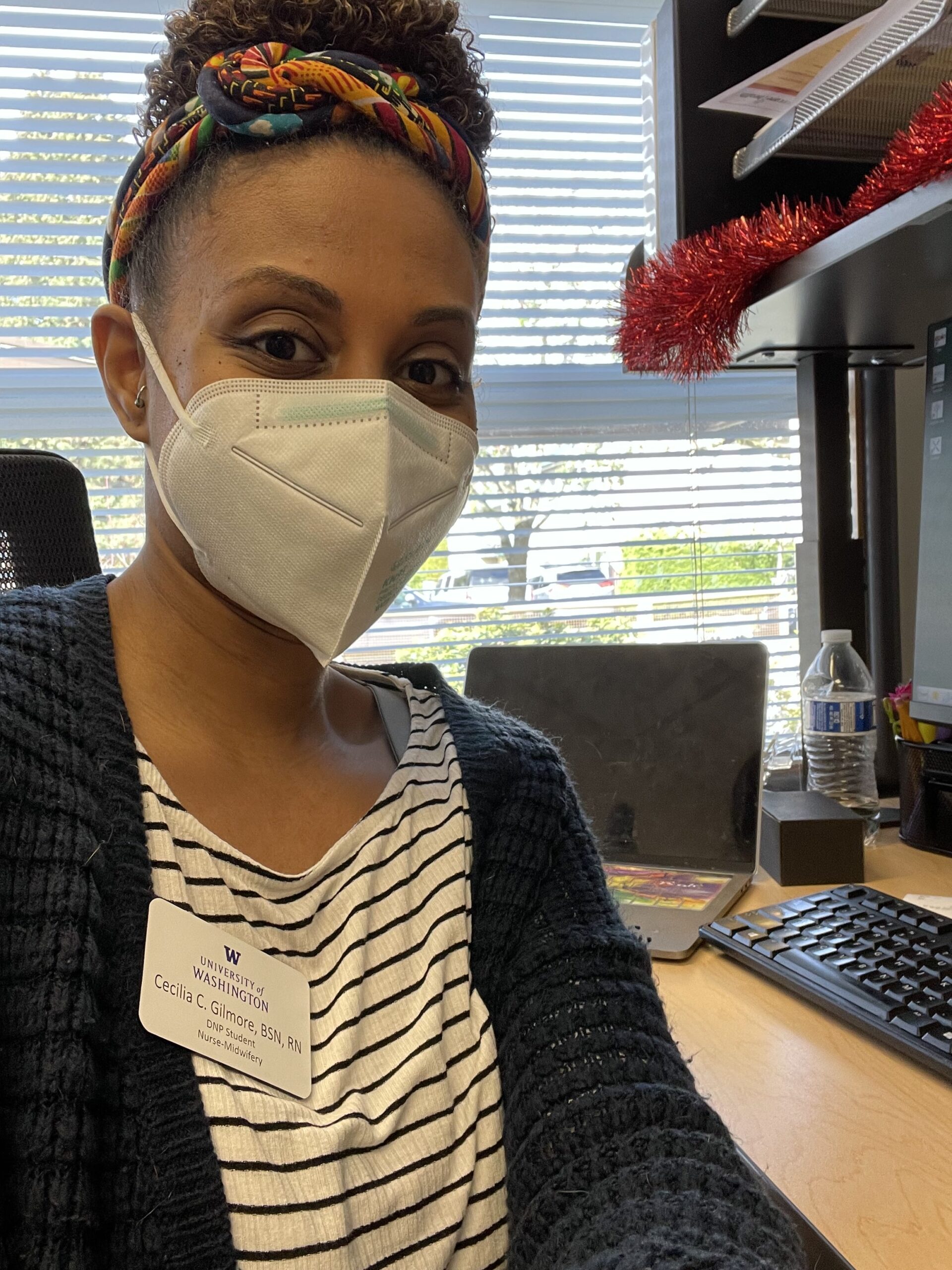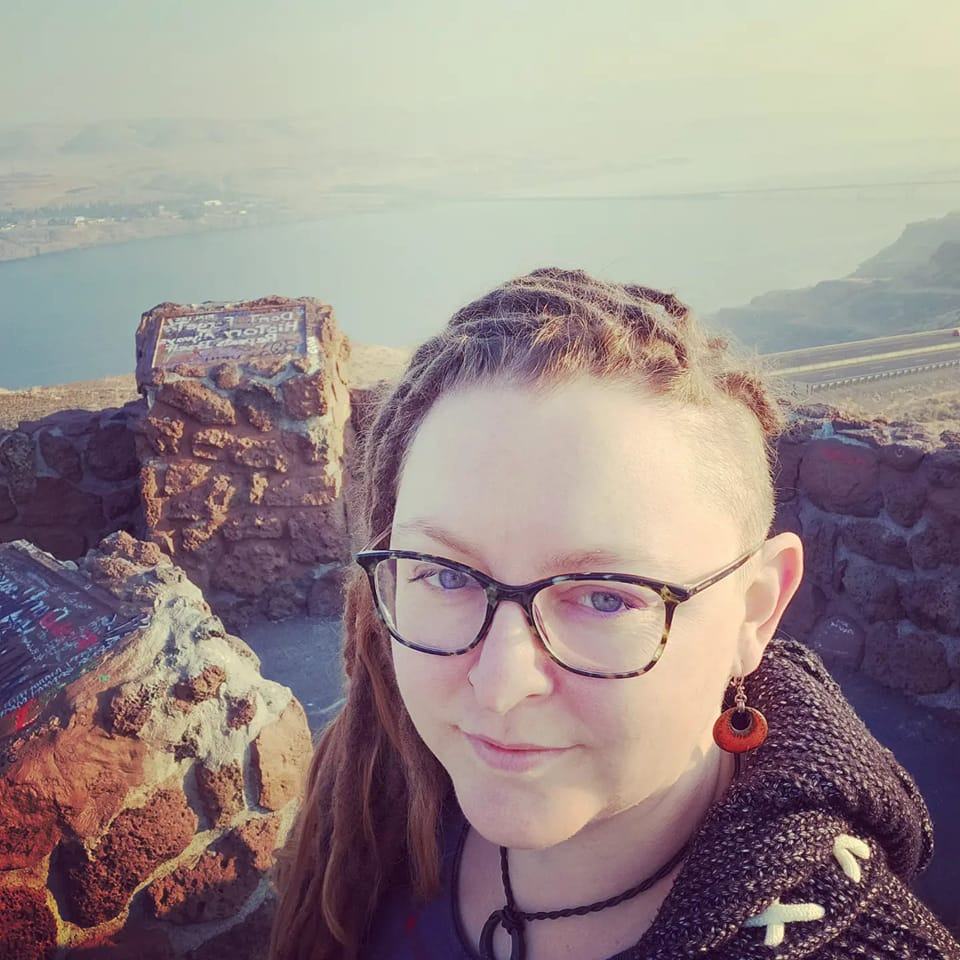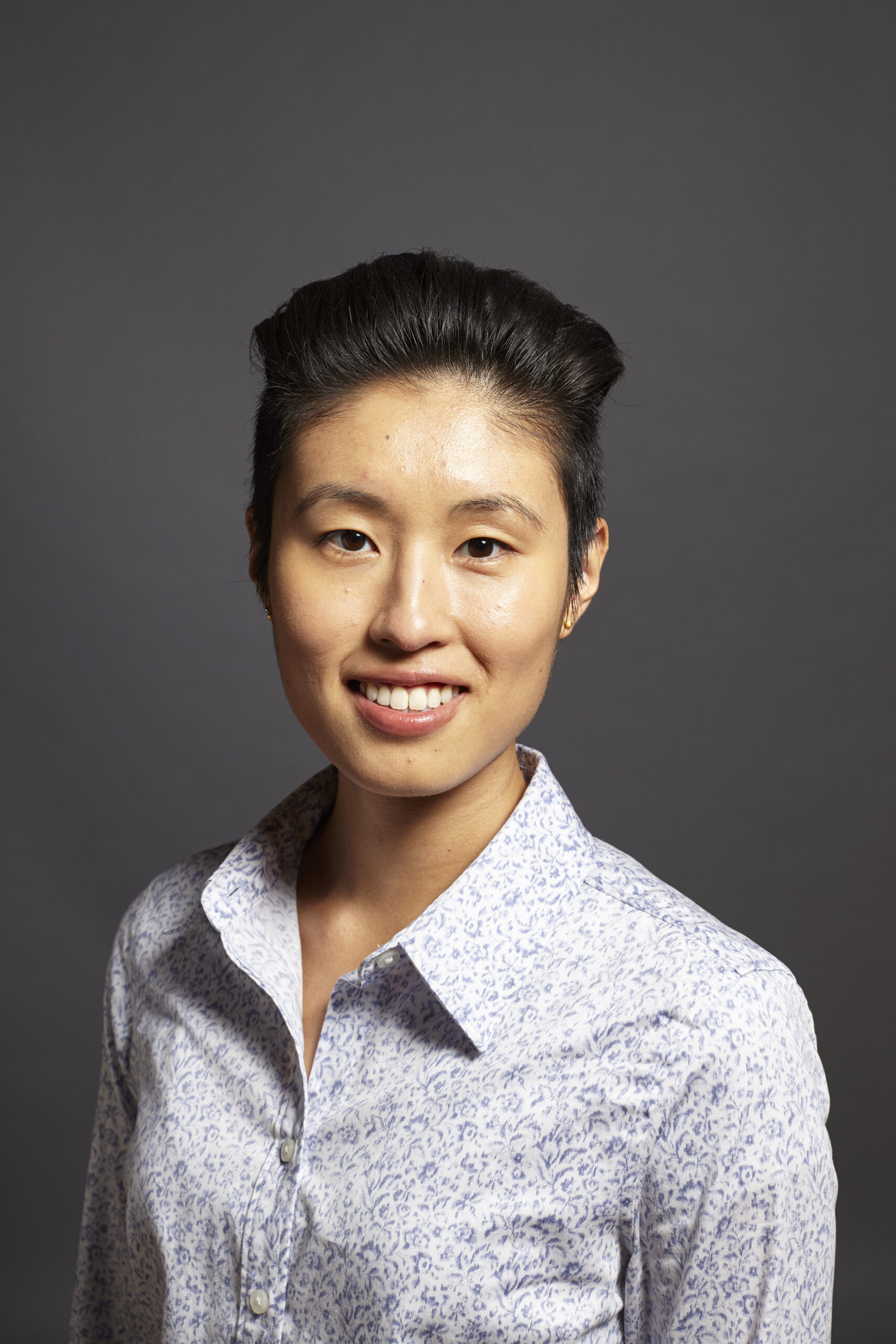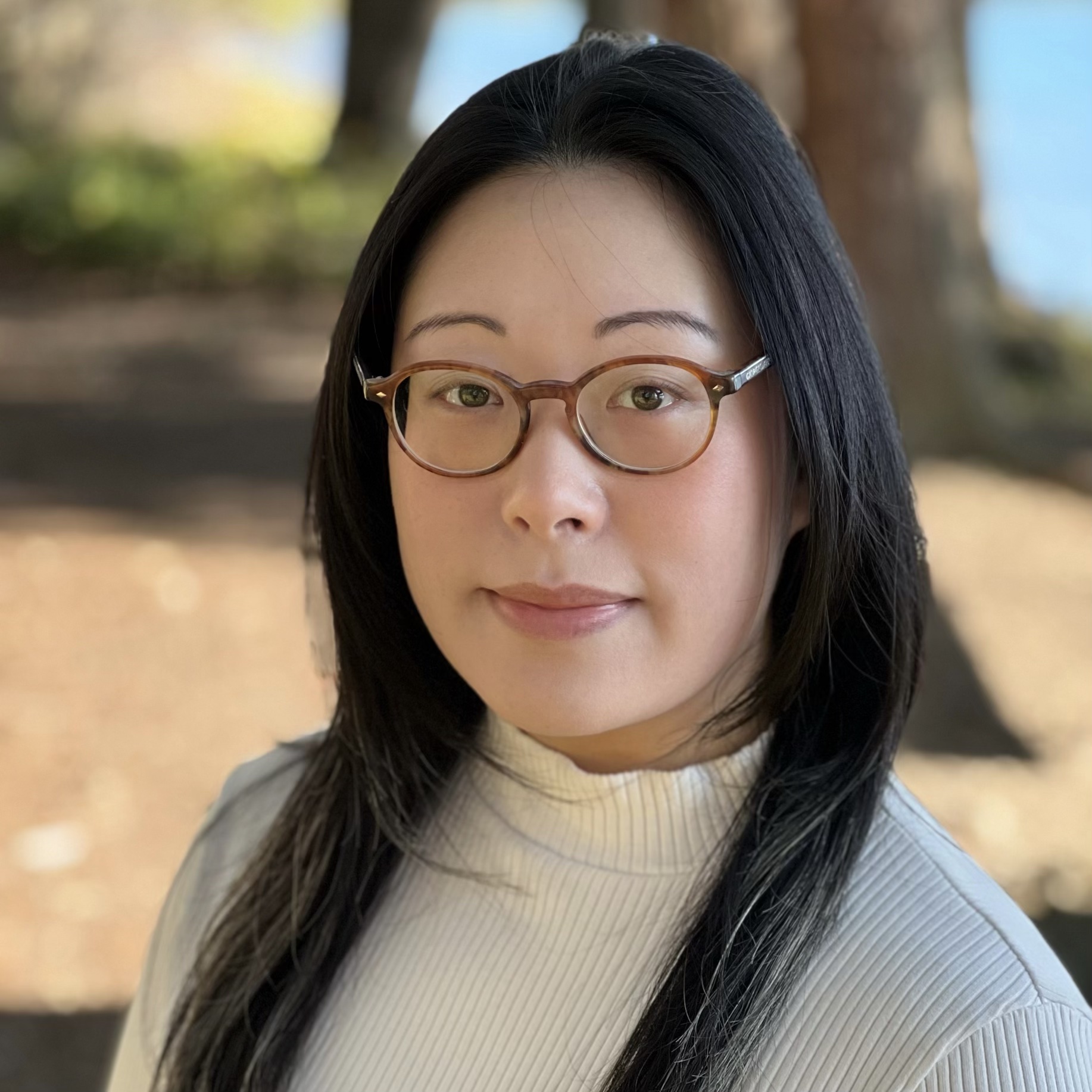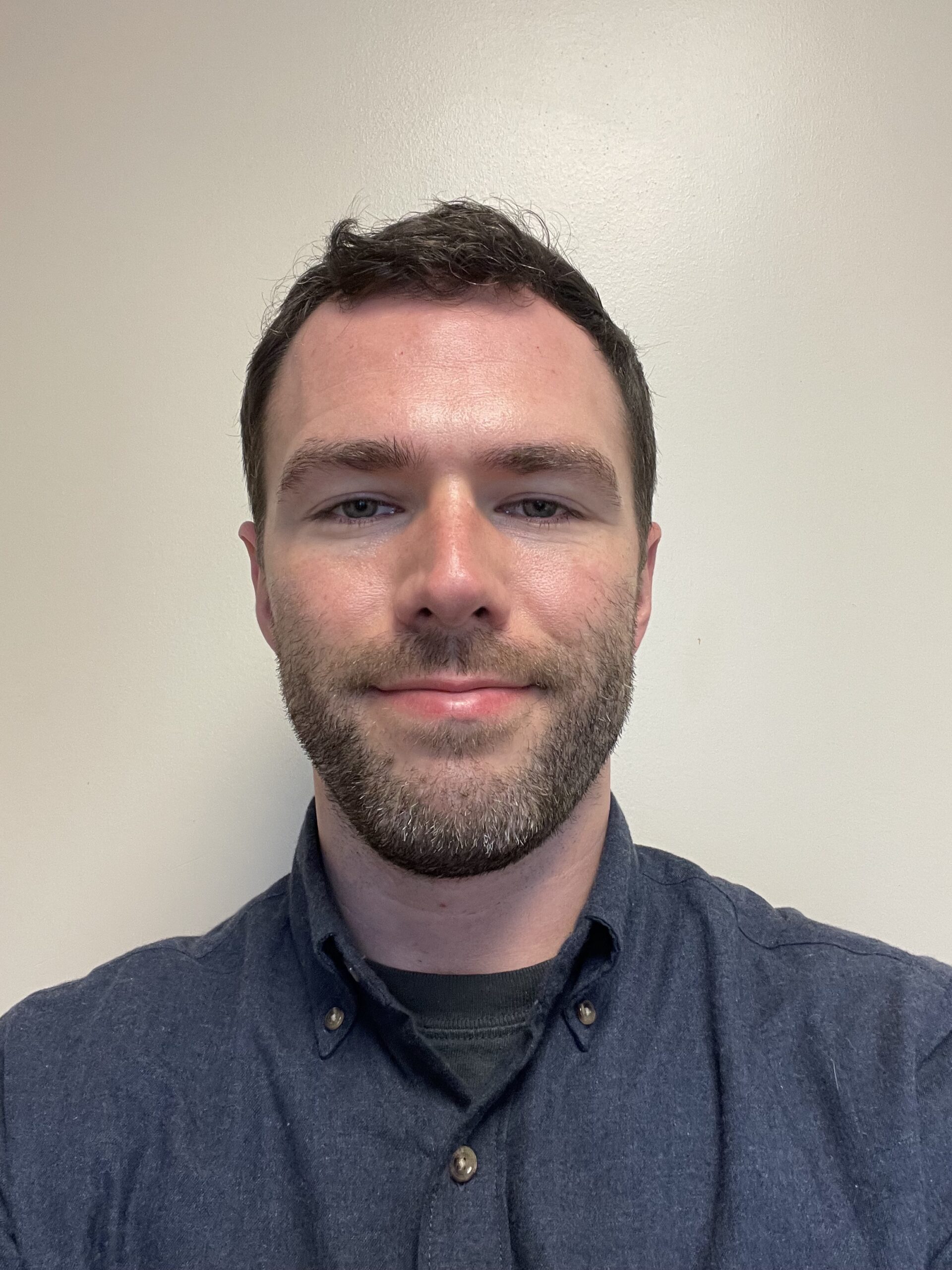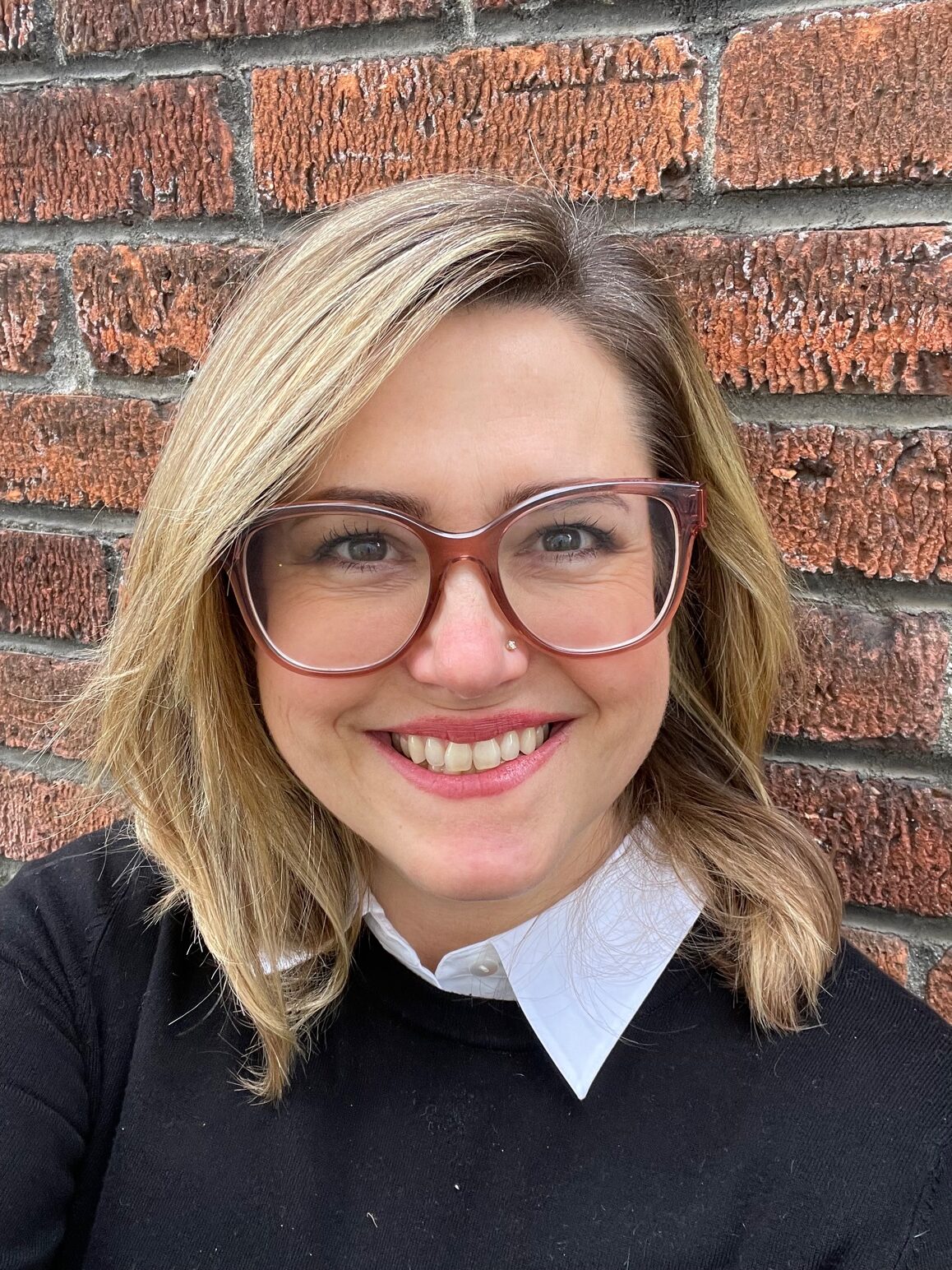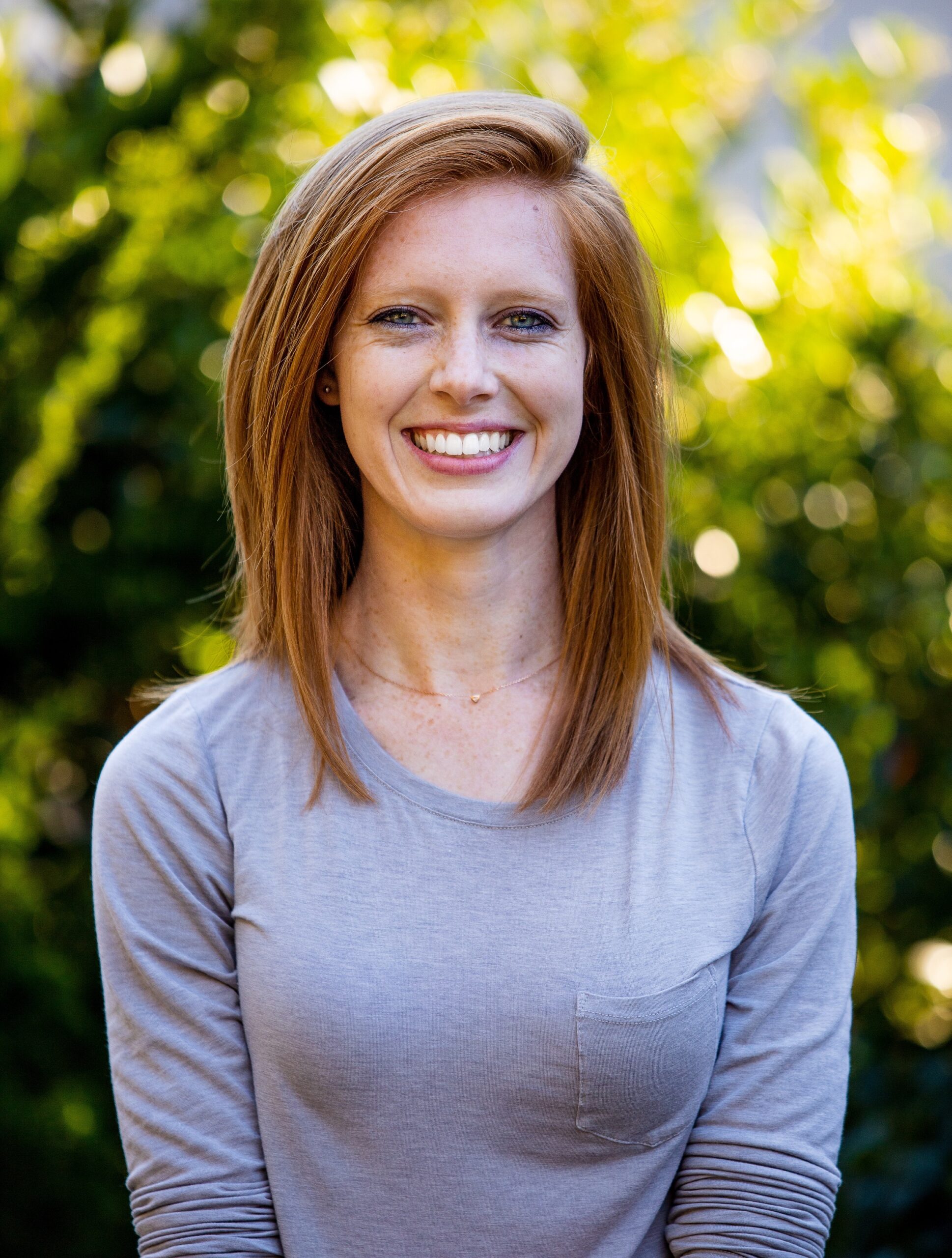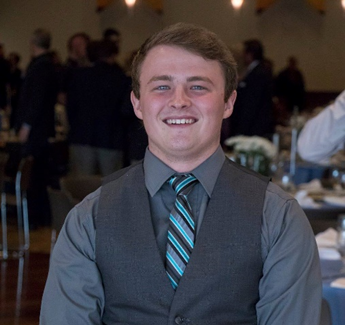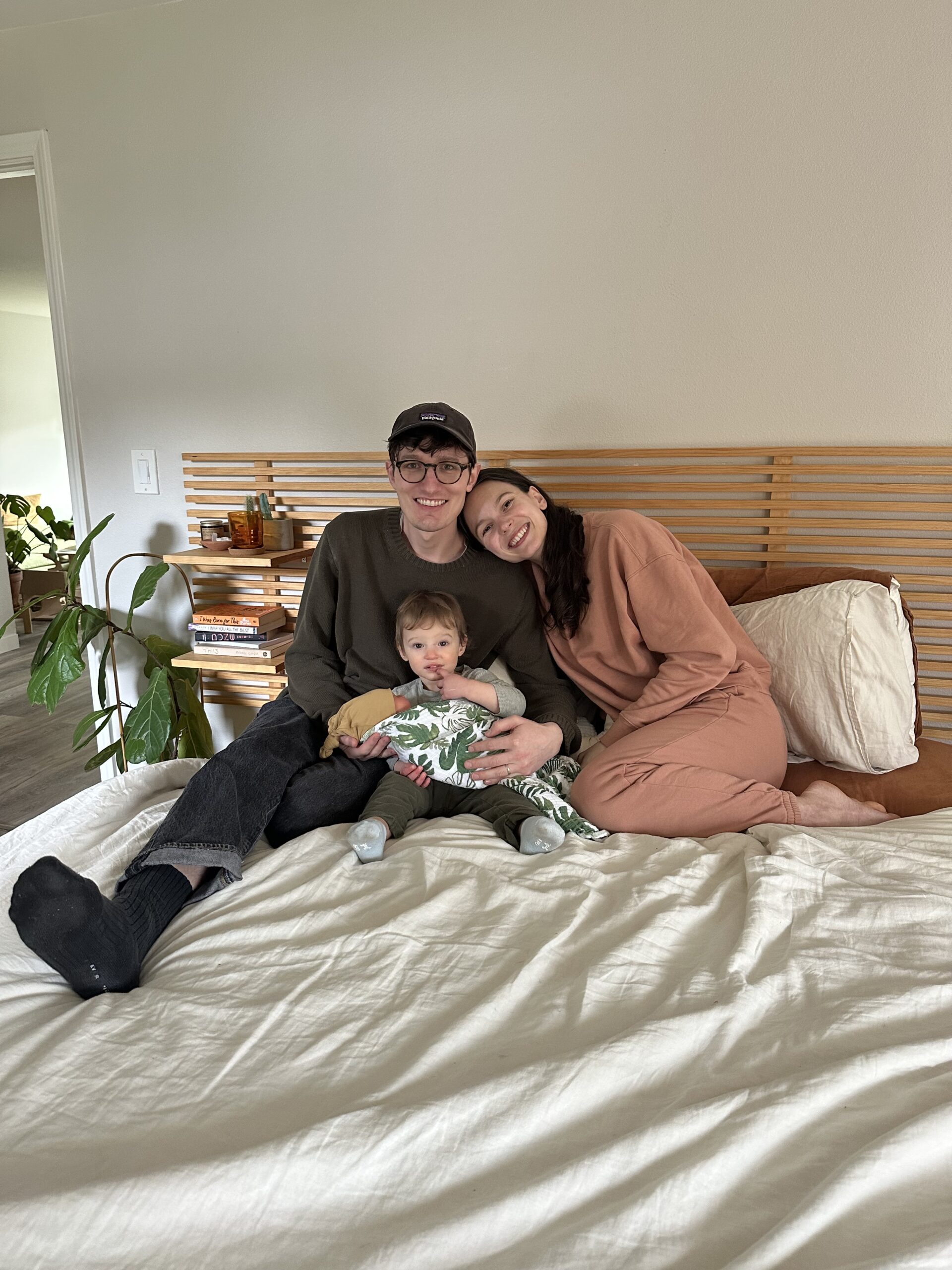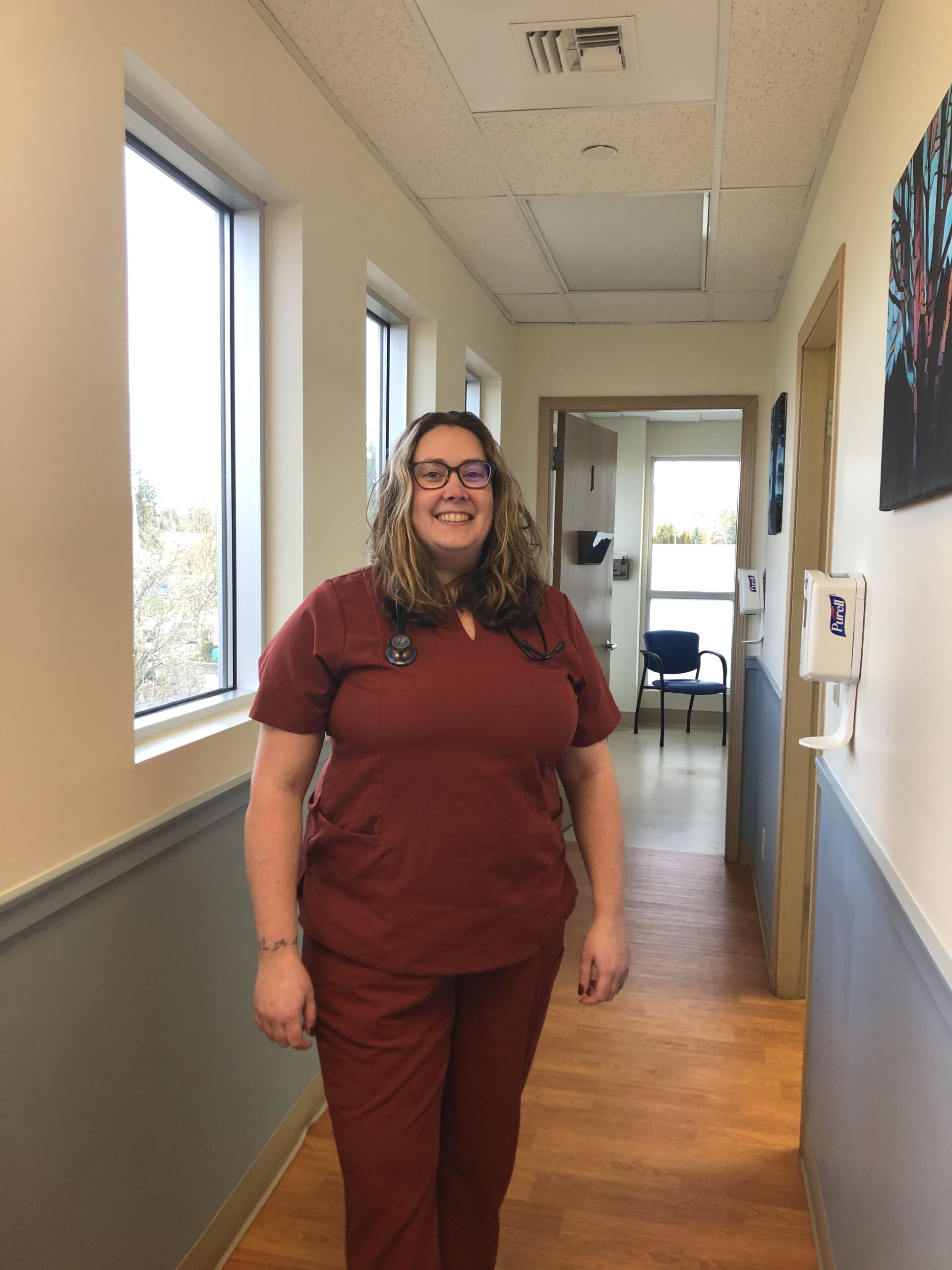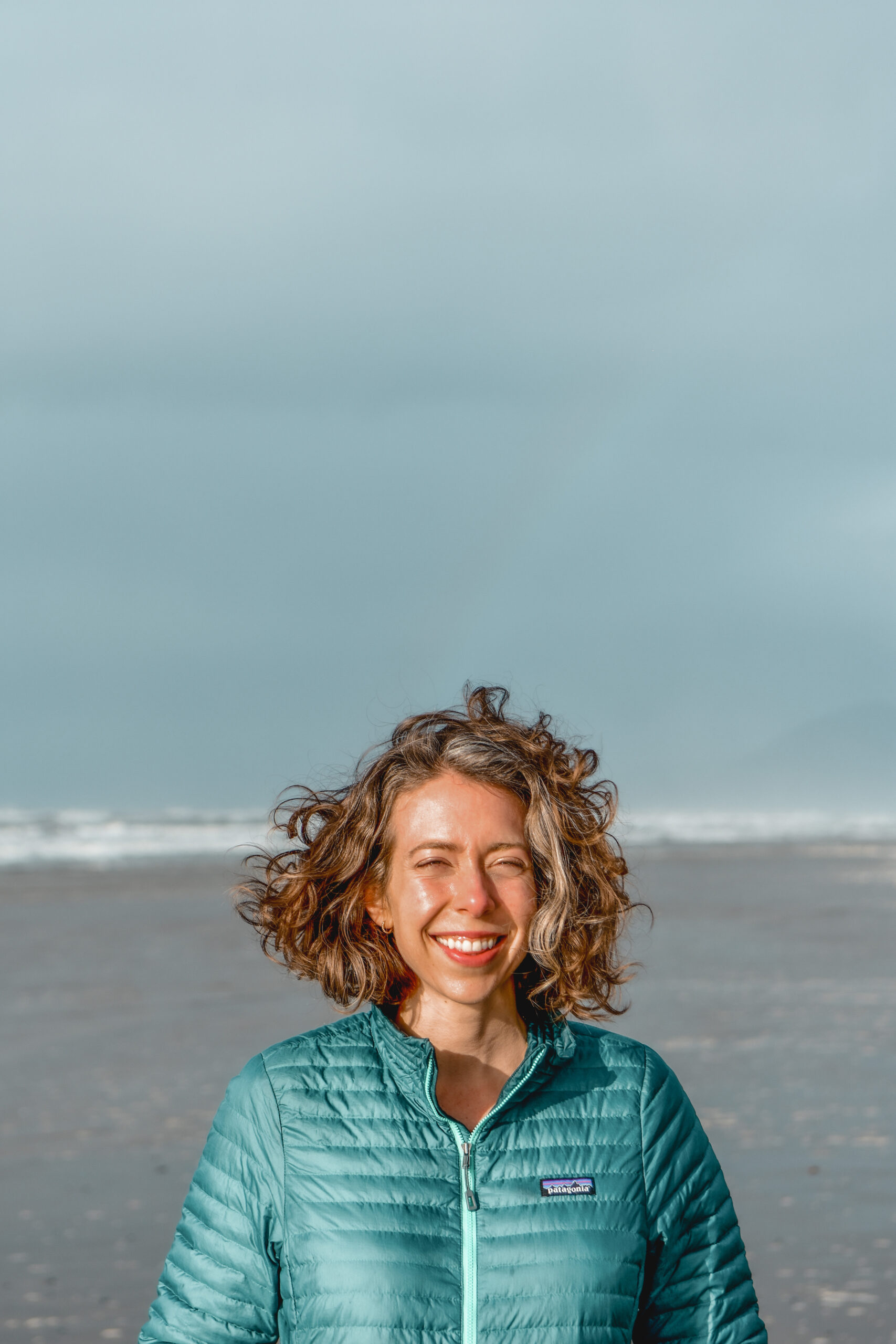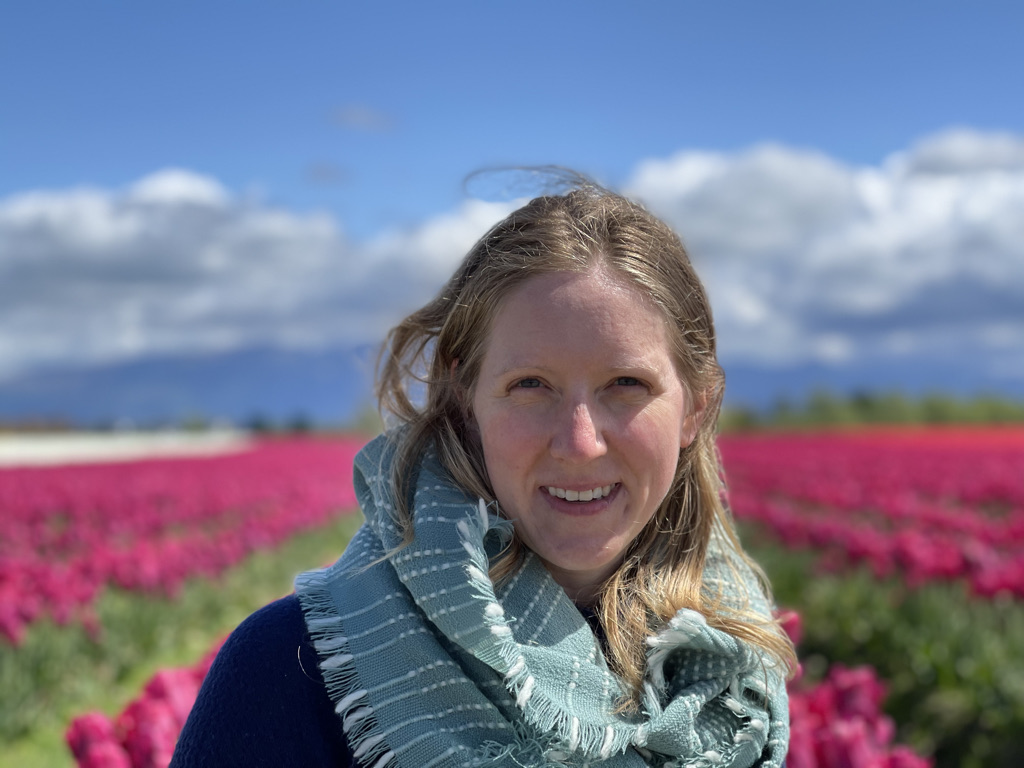Meet Some of Our 2023 Graduating Doctor of Nursing Practice Students
Today, our class of 2023 Doctor of Nursing Practice students presented their final projects. Read messages for the graduating class by school leadership here. Meet some of our incredible 2023 graduating DNP student sand learn about their projects below:
Julie Suter
Name: Julie Suter
Degree: Doctor of Nursing Practice ’23 Track: Adult Geriatric Primary Care Nurse Practitioner (AGNP-PC)
Project Title: Preventing Adolescent Suicide Death by Firearm Through Implementation of S.A.F.E. Firearm in Primary Care
What was your final project? How did your project make an impact on you? Did it change your view of the role that nurses play in our communities?
My DNP Project is focused on reducing firearm related suicide deaths in adolescents and youth in Washington. I took the first steps in initiating an evidence-based process known as S.A.F.E. Firearm in practice at MultiCare’s SeaMar Tacoma-Cushman Pediatric clinic.
The process consists of providing brief firearm storage counseling to parents of youth and providing a free gun lock. These strategies are proven to save lives, and can be implemented in an annual primary care check up. This project hit home for me. We have seen countless lives ended at the hands of firearms throughout our nation. We as doctorally prepared primary care providers are trusted in our communities and suited to do this important work.
Santosh Shrestha
Name: Santosh Shrestha
Degree: Doctor of Nursing Practice, Class of 2023: Adult-Gerontology Primary Care Track
Project Title: Comprehensive Chronic Pain Assessment for Individuals Incarcerated in the Washington State Department of Corrections (DOC)
What was your final project? How did your project make an impact on you? Did it change your view of the role that nurses play in our communities?
For my final capstone project, I developed a comprehensive chronic pain assessment tool for implementation throughout primary care clinics in the DOC. Chronic pain is a complex healthcare issue that presents unique challenges, particularly in the prison population, where physical, mental, and behavioral health conditions often coexist. The lack of clear guidelines and standardized protocols for providers to assess and manage complex chronic pain cases presented a significant problem. To address this issue, I created a framework to help providers systematically evaluate the multiple factors likely contributing to chronic pain. The resulting improvement in diagnostic accuracy and patient-centered care plans will be a remarkable step forward in addressing the needs of the incarcerated population and promoting equitable access to quality healthcare.
My experience working on this project was transformative, boosting my confidence and expanding my understanding of the role of a DNP. My education at the University of Washington Doctor of Nursing program equipped me with the necessary knowledge and skills to create an evidence-based tool for practice change in a large organization like the DOC. As evidence suggests that improving a chronic pain patient’s daily lifestyle is more important than reducing pain intensity, the tool I developed incorporated a biopsychosocial approach to pain assessment. This model views pain as a complex interaction between biological, psychological, and social factors, allowing providers to deliver passionate and holistic care.
This project also reshaped my view of the critical role that nurses play in our communities. Nurses have an incredible ability to lead quality improvement endeavors by incorporating the best evidence into their practice. They are at the forefront of various settings and can enhance patient care by advocating, educating, and coordinating interdisciplinary care. Overall, this project seamlessly demonstrated the tripartite role of the DNP: 1) through practice inquiry, evidence was gathered, critically appraised, and translated into local practice change; 2) advanced practice by promoting an evidence-based holistic approach to care for improved patient outcomes; and 3) leadership skills by fostering collaboration with UW pain specialists and DOC mentors.
Jessi Kelley
Name: Jessi Kelley
Degree: Doctor of Nursing Practice, Class of 2023: Population Health & Systems Leadership Track
Project Title: Extreme Heat Preparedness and Response: Implementation Barriers, Facilitators, and Needs in the U.S.
What was your final project? How did your project make an impact on you? Did it change your view of the role that nurses play in our communities?
My final project was a collaboration with the UW Collaborative on Extreme Event Resilience (CEER), UW Center for Health and the Global Environment (CHanGE), and the National Association of County and City Health Officials. I facilitated recruitment and data collection through focus group discussions with health officials across the U.S. With support from agency partners, my project aimed to understand facilitators, barriers, and needs for extreme heat preparedness and response implementation among local health jurisdictions in the U.S. From those focus groups, I provided recommendations to support local health jurisdictions nationwide as extreme heat events increasingly impact geographically and climatologically diverse regions.
The project was impactful for me to contribute to solutions that address the urgency of extreme weather events and associated health impacts. In June 2021, the Pacific Northwest experienced a heat dome with record temperatures and heat-related mortalities. The extreme heat preparedness and response infrastructure were exposed as insufficient to meet the needs of our communities and the individuals that live and depend on our public and preventive health systems. The COVID-19 pandemic was ongoing, so extreme heat was a compounding emergency. Focusing on population health and systems leadership, I wanted to collaborate on change solutions to promote fortitude against climate-associated health impacts prioritizing the most vulnerable and affected populations.
This project was available due to connections I made with Dr. Nicole Errett, co-director of CEER. I actively pursued a project aligned with my interests in disaster preparedness and transdisciplinary collaboration. I encourage future DNP students to capitalize on the networking and collaborative opportunities at a large institution like UW. You can make the DNP program and the DNP project fit your interests while addressing the health needs of our patients and populations, always through an equity lens.
Nursing fundamentally assesses the environment as an element of health promotion. Nursing diagnoses, directly and indirectly, address environmental factors that contribute to health; it is ingrained in us. Nurses also bring knowledge of the physiological impacts of various health stressors. Through this environmental-to-individual health impact lens: Nursing is uniquely positioned to partner across science and industry sectors, with Indigenous peoples, with communities, and with vulnerable groups to communicate the climate impacts on health and create sustainable solutions for environmental and individual health promotion.
Cecilia “Ceci” Gilmore
Name: Cecilia “Ceci” Gilmore
Degree: Doctor of Nursing Practice, Class of 2023: Nurse Midwifery Track
Project Title: Deconstructing the BIPOC voice: A Best Practice Midwife-led High-risk Peripartum Care Model in a Federally Qualified Health Center
What was your final project? How did your project make an impact on you? Did it change your view of the role that nurses play in our communities?
The overall goal of my agency, Neighborcare Health Midwifery is to create a best practice model for other Federally Qualified Health Centers (FQHCs). This stemmed from NCH realizing they had favorable birthing outcomes. Previous DNP projects by Dr. Keely Robinson and Dr. Letitia Salazar Monk investigated provider-related contributions, provided recommendations for replication for other FQHCs, looked at care delivery from the patients’ perspectives, and recommended evidence-based practices for people of color. Given that 1st generation immigrants have not had the same lifetime exposures to systematic racism and oppression as U.S.-born people of color (POC), foreign born birthing people have better outcomes compared to US born counterparts. NCH midwives see a large foreign-born birthing population and could not associate favorable outcomes solely with best practices.
My project expanded on previous investigations by DNP students by improving data collection/retrieval of racial/ethnic demographic, location of birth, and generational status in the United States in order to have the data in order to determine if there is a correlation. This project also examined best care for foreign born vs U.S. born POC to inform best practices.
Often the terms BIPOC or people of color are used as a relative monolith for multiple racial ethnic groups. This project reemphasized how important it is to recognize the intersection of patients’ identities and how it may influence outcomes. It reminded me of the importance of individualized care for all populations served. As a person who identifies as Black and a mother, I am proud that this work is being done because it could mean that it improves maternal morbidities, mortality, and reduce harms for all folx but especially my black and brown brothers and sisters that are known to have drastically different birthing outcomes and experiences due to systematic racism.
Absolutely! I completed my ABSN at UW before my DNP. I am in constant awe of all roles nurses have the privilege of holding. Our role is extended beyond patient care. Nurses are leaders, researchers, problem solvers, teachers and so much more. Because many patients trust nurses and spend the majority of time in healthcare with nurses, we are often the bridge to be advocates of change based on our understanding of patients’ needs and systems at play.
Shelley Lesko
Name: Shelley Lesko
Degree: Doctor of Nursing Practice, Class of 2023: Nurse-Midwife Track
Project Title: A Clinical Workflow for Safe, Welcoming, and Joyful Care of Birthing Transgender and Non-Binary People and Their Families
What was your final project? How did your project make an impact on you? Did it change your view of the role that nurses play in our communities?
My final project was in collaboration with Quilted Health. Quilted Health is a private, midwifery-led agency focusing on holistic care for communities that have historically experienced marginalization in perinatal care. Literature shows that limited resources and education exist to guide healthcare professionals in providing a safe, welcoming, and joyful care environment for birthing transgender and non-binary people and their families. The Project Seahorse Toolkit aims to bridge the gap between this educational deficit and real-world practice for all perinatal healthcare providers worldwide by providing a digital toolkit. My contribution to the toolkit is a clinical workflow. The workflow provides a low-cost, easy-access algorithm for any healthcare provider to provide inclusive and conscientious care.
The project impacted my critical thinking and how my implicit biases can affect patient care despite my best intentions as a cis-gender person. The opportunity to work with my agency mentor was something I consider to be a tremendous honor and an experience that will shape the rest of my career. This project opened my mind to how the midwifery model and nursing philosophy of holistic care can impact communities. Midwifery and nursing are imperative to the necessary changes needed to combat current crises such as perinatal mortality rates, the underserving of historically marginalized communities, and the historical stigmatization and discrimination against LGBTQIA+ patients by healthcare workers.
Lilia Peng
Name: Lilia Peng
Degree: Doctor of Nursing Practice, Class of 2023: Psychiatric Mental Health Nurse Practitioner Track
Project Title: Improving Asian American and Pacific Islander (AAPI) Patient Engagement in Behavioral Health Services with Educational Videos
What was your final project? How did your project make an impact on you? Did it change your view of the role that nurses play in our communities?
My DNP capstone project aimed to address low engagement in behavioral health services among Asian American and Pacific Islanders (AAPIs). I worked with International Community Health Services (ICHS) to develop a video script for a patient educational video to increase awareness of and decrease stigma around mental health. I developed an English script to serve as a template for translating into and tailoring to other AAPI languages and cultures as well as a translated Chinese script for a pilot video for Cantonese Chinese patients.
This was a meaningful project for me because I was able to contribute to addressing health disparities within one of my own communities. As part of my project, I also surveyed ICHS staff for feedback on the Chinese script and was inspired by the engagement from staff around behavioral health. I learned even more about the nuances and importance of culturally tailored interventions, and the project strengthened my view of nurses as advocates for culturally sensitive and inclusive care in our communities.
Sarah Kim
Name: Sarah Kim
Degree: Doctor of Nursing Practice, Class of 2023: Psychiatric Mental Health Nurse Practitioner Track
Project Title: Development of an HIV and Viral Hepatitis Risk Assessment Tool for a Certified Community Behavioral Health Clinic (CCBHC)
What was your final project? How did your project make an impact on you? Did it change your view of the role that nurses play in our communities?
My DNP project was the development of a combined HIV and viral hepatitis A, B, and C risk assessment tool and follow-up plan for a community behavioral health clinic. Individuals with co-occurring mental illness or substance use disorder are at an increased risk of contracting HIV and viral hepatitis A, B, and C. Screening people at risk for these infections provides opportunities for health education and referral for testing and treatment. The goal was to develop a tool to refer clients at high risk of infection for testing and further treatment with local health agencies in Pierce County, WA. As part of the objectives, I reviewed the literature to develop a risk assessment tool, created a process map, contacted local health agencies to build a resource network, and created educational materials for clinicians and clients.
My project provided further evidence for nurses to advocate for comprehensive care and improved care coordination for patients. While working on this project, I was able to have conversations with local health agencies like the health department, pharmacies, and primary care clinics to learn more about the resources in Pierce County. One very interesting resource I found is a pharmacy-based pilot program where patients can directly go to participating pharmacies to receive PrEP without a visit to their healthcare provider. Collaborating with other healthcare professionals and programs can ensure patients receive appropriate follow-up testing, treatment, and support services.
Maxwell Taylor
Name: Maxwell Taylor
Degree: Doctor of Nursing Practice, Class of 2023: Psychiatric Mental Health Nurse Practitioner Track
Project Title: Medical Records Review to Verify Substance Use Disorder Diagnosis Among Individuals with Chronic Pain Identified by a Quantitative Analysis
What was your final project? How did your project make an impact on you? Did it change your view of the role that nurses play in our communities?
Substance use disorders (SUD), which are common in the general community, have an even higher prevalence in incarcerated populations. There is also a high prevalence of co-occurring SUD in those living with a chronic pain (CP) diagnosis. Overdose is the leading cause of mortality for recently released incarcerated individuals and increased by 31% just from 2019 to 2020. Treatments including psychotherapeutic and medication assisted therapy (MAT) are evidence-based and indicated for this population; however, their utilization relies on the identification and assessment of those living with these disorders. Large systematic reviews, with tens of thousands of participants, have shown that roughly 4% of these individuals receive a referral for SUD treatment while non-justice-involved individuals are referred over 40% of the time. Another systematic review showed only one in twenty incarcerated individuals with a SUD are being treated with any agonist therapy. My final project, a collaboration between the University of Washington and the Washington State (WA) Department of Corrections (DOC), was to conduct a quantitative analysis of SUDs among participants with CP within WA DOC. This required institutional review board approval as this study involved human participants. Measures included prevalence of SUDs, Diagnostic and Statistical Manual (DSM) diagnoses, utilization of MAT, and demographic information of participants. Results showed a high prevalence of both DSM diagnoses and SUDs among incarcerated individuals with CP, gender differences in DSM prevalence, and a low utilization of MAT within WA DOC. In my recommendations, I emphasized the importance of future Doctor of Nursing Practice students to investigate barriers to utilizing MAT within WA DOC.
My project was both fulfilling to myself and important to the community. I had the privilege to contribute new data to an understudied area of psychiatry while serving an underserved population. Currently, overdose is the leading cause of mortality for those recently released from incarceration. What’s important is this: the culmination of many doctoral projects will lead to improved health outcomes for the community, rather than my project alone. The most impactful thing is to continue to be curious about our role, those we serve, and how we can improve the current system.
Nurses practice in a diverse range of settings, capacities, and skill levels to meet the needs of others. This project is an example of how the nursing profession has continued to advance to the benefit of their patients, colleagues, and the healthcare system. We continue to adapt, grow, and learn how to serve those who otherwise wouldn’t be seen.
Kelly Schorling Brewer
Name: Kelly Schorling Brewer
Degree: Doctor of Nursing Practice, Class of 2023: Psychiatric Mental Health Nurse Practitioner Track
Project Title: Evidence-Based interventions for reducing compassion fatigue in Permanent Supportive Housing Staff- Compass Housing Alliance
What was your final project? How did your project make an impact on you? Did it change your view of the role that nurses play in our communities?
My capstone project partnered with Compass Housing Alliance to recommend evidence-based interventions to reduce the incidence of compassion fatigue among permanent supportive housing staff. I really loved working on this project, it instilled in me a sense of hope. As a nurse, I understand how hard it is to work with traumatized patients, and I have personal experience with burnout. Looking around at all the nurses, community services workers, and other helper professions during COVID we see so much fatigue, secondary stress, and burnout. It can start to feel overwhelming and hopeless. My project showed that there are some relatively simple evidence-based interventions we can implement to reduce the impact of compassion fatigue. So many more studies are also currently underway to figure out ways to better support staff. It’s not a magic bullet, and it takes commitment, but it’s doable! I think advanced practice nurses, and Psychiatric Nurse Practitioners, in particular, are well suited to lead these efforts.
Liz Ferrill
Name: Liz Ferrill
Degree: Doctor of Nursing Practice, Class of 2023: Pediatric Nurse Practitioner – Acute Care Track
Project Title: Reducing Rescue Event Disparities for Families that Use a Language Other Than English
What was your final project? How did your project make an impact on you? Did it change your view of the role that nurses play in our communities?
My project was centered around the fact that patients and families that speak a language other than English experience higher rates of rescue events at Seattle Children’s Hospital than English-speaking families. Rescue events occur when a patient is seen by the Rapid Response Team and then transferred to the ICU and require certain escalation in either hemodynamic or ventilatory support within two hours of transfer. As you can imagine, this can potentially lead to increased morbidity and mortality. Much of the project focused on leveraging partnerships with different stakeholders to increase interpreter use and equitable communication on one of the medical units at the hospital.
I had previously been involved in similar work, and this project was a great opportunity for me to create a pilot intervention that addressed a known disparity. The project highlighted a lot of opportunities to improve our communication and therapeutic relationships with families, which may be an important factor in earlier recognition of illness. Nurses and nurse practitioners have a huge capacity to impact the outcomes the patients and families we care for experience. They are often integral pieces of the medical team, skilled at both navigating the complexities of the hospital system and advocating for and empowering families.
Nikko Songco
Name: Nikko Songco
Degree: Doctor of Nursing Practice, Class of 2023: Pediatric Nurse Practitioner – Acute Care Track
Project Title: Use of High Flow Nasal Cannula in Pediatric Acute Care
What was your final project? How did your project make an impact on you? Did it change your view of the role that nurses play in our communities?
My final project focused on reviewing current evidence on high-flow nasal cannula practices so that we may expand policy and guidelines for its application on the acute care floor. This was identified as a priority at the institution I was working with to improve resource allocation and address ICU/ED overcrowding amid ongoing concerns about critical capacity. This project helped me understand the amount of work that goes into evidence review and creating best practice recommendations. I learned how exhaustive the process of critiquing articles and synthesizing evidence can be. I’ve been an ER nurse for over 11 years now so I have seen the impact that nurses have on patient care but it was refreshing to see it work on a systems level.
Kordale Bavor
Name: Kordale Bavor
Degree: Doctor of Nursing Practice, Class of 2023: Pediatric Primary Care Track
Project Title: Providing Pediatric Diabetes Care at an Integrated Care System: Needs Assessment
What was your final project? How did your project make an impact on you? Did it change your view of the role that nurses play in our communities?
My project was to conduct a needs assessment at an integrated care system to inform the implementation of a pediatric diabetes program within that system. To accomplish this, I interviewed a multidisciplinary group of staff members, created surveys for patients and parents, analyzed the volume and characteristics of the population, and estimated the cost of pediatric diabetes care at outside organizations. Through these endeavors, I realized that when you have a vision for the future, you must take the time to evaluate all possible factors in the present. It’s only human nature to jump right into a great idea and blindly push forward, but if you neglect the needs of all stakeholders, your end-product will be nothing more than an aimless creation. Of course, nurses have the capacity to overcome these instincts through their experiences on the frontlines and in the boardroom. We see the priorities of our patients, and we recognize the flaws of a faltering healthcare system. When we convey our knowledge in collaboration with others, the opportunities are endless.
Tyler Breier
Name: Tyler Breier
Degree: Doctor of Nursing Practice, Class of 2023, DNP Population Health & Systems Leadership Track
Project Title: Child Care Health Consultation Program Planning Project
What was your final project? How did your project make an impact on you? Did it change your view of the role that nurses play in our communities?
My final project aimed to address inequitable access to child care health consultation (CCHC) in King County. I looked at existing programs utilizing community health workers (CHWs) and nurses (RNs/PHNs) for health care delivery in the community setting and from that data, found two styles of partnerships that showed positive health outcomes for clients. Based on that data, I surveyed and interviewed the Child Care Health Program (CCHP) team at Public Health – Seattle & King County (PHSKC) of which I am a PHN on. Given they are content experts in CCHC, it was important to use their collective knowledge to determine what, if any, CHW/PHN partnership model would be appropriate for CCHC. Based on those results I made recommendations for PHSKC to consider addressing with the future goal of developing a pilot program.
My project was a great example of starting a project and needing to make real-time adjustments and changes. My DNP project strengthened my skills in qualitative data collection and analysis as well as leadership. I think it is often quite easy to get stuck on our idea or plan and lose focus on the narratives and stories the data is actually saying. It was important to me that regardless of what my hopes for the project were, that the input from the community I was working with led the way. This project also forced me to be okay with starting small. The very limited time we have for implementation prevented me from truly utilizing principles of community driven research, and so I was not able to involve all members of the child care community in King County. Thankfully, because I work on the CCHP, my plan and hope is to continue this work after graduation and further engage with community members and develop strong relationships and partnerships.
I’m not sure this project changed the way I view the nursing role in communities. If anything, I think it strengthened my view that nurses really are individuals with skill sets that, while incredibly valuable and irreplaceable, are not the key to solutions. The real impact that nurses have in the health of communities is our ability to intersect with the clinical and communal aspects of health. We bring to the table a set of tools and lenses that are invaluable but need to be engaging with community to do great work. This project has affirmed my passion for systems thinking and to continue improving my ability to assist organizations with community engagement in healthy and sustainable ways.
Melissa Bird
Name: Melissa Bird
Degree: Doctor of Nursing Practice, Class of 2023: Adult Gerontology Acute Care Track
Project Title: An Alternative Acute Care Alcohol Withdrawal Protocol
What was your final project? How did your project make an impact on you? Did it change your view of the role that nurses play in our communities?
My final project was to create an alternative alcohol withdrawal program for the facility that I was working with. There was great support from an interdisciplinary team that consisted of medical providers, pharmacy, nursing and the quality department. I learned a lot about how to make change in a clinical setting and how to lead a process improvement project with a large team. It isn’t enough to just present an idea, it is important to explain the background, research, and rationale to engage the appropriate stakeholders. I was also able to see the advantage of using a translational science model to move a project forward and will utilize this in future projects. I was approached by the hospital wide nursing practice who has made it their goal to continue to move this project forward, showing that nurses continue to be strong leaders in our communities. Since nurses spend the most time at the bedside, we have a unique perspective and the patient stories that can lead to changes in healthcare delivery.
Liyana Winchell
Name: Liyana Winchell
Degree: Doctor of Nursing Practice, Class of 2023: Family Nurse Practitioner Track
Project Title: Updated Guidelines for Care of Students with Diabetes for Washington State
K-12 Schools
What was your final project? How did your project make an impact on you? Did it change your view of the role that nurses play in our communities?
The purpose of my DNP project was to update the 2018 Guidelines for Care of Students with Diabetes for use in all Washington state K-12 schools. This guideline is a crucial resource and guide for managing diabetes in the school setting for members of the school health team, the student’s personal diabetes health care team, parents/guardians, and students with diabetes. I worked in collaboration with the Washington Office of Superintendent of Public Instruction (OSPI) to identify gaps in the guideline and update language, guidance, and technology into a comprehensive and user-friendly format.
While reviewing the current guideline and other school-based diabetes guidelines, I was surprised to learn just how significant of a role school nurses and staff play in diabetes management. It became evident that evidence-based guidance, clear communication, and interdisciplinary collaboration are essential to supporting the physical and emotional health of students with diabetes and their families.
Through working on this project, my understanding of the nurse practitioner role expanded beyond the clinical sphere to view NPs as leaders in patient advocacy and practice change to improve patient outcomes. I had not previously considered the intersection of the nurse practitioner role and school health guidelines, so this process provided insight into the importance of such collaboration to support the development of current, evidence-based guidance.
I am grateful for the many contributors to this guideline update, including hospital-based pediatric diabetes specialists, diabetes educators, school nurses, school administrators, parents/guardians, and OSPI. There was often overlap between health staff and families of students with diabetes, and I was encouraged and inspired by the amount of enthusiasm, helpful feedback, and passionate support for this guideline due to its important role in school-based diabetes management.
Kendra Loebs
Name: Kendra Loebs
Degree: Doctor of Nursing Practice, Class of 2023: Family Nurse Practitioner Track
Project Title: Evaluation of Continuing Education Needs for Inpatient Solid Organ Transplant Nurses
What was your final project? How did your project make an impact on you? Did it change your view of the role that nurses play in our communities?
For my project I conducted an assessment of the educational needs of inpatient transplant RNs at a large hospital system in Seattle. My goal was to determine both the transplant-related topics that RNs want to learn about as well as the format for delivery of this educational content.
Prior to starting the DNP program, I worked as an RN in a cardiac surgery ICU that cared for heart and lung transplant patients. Playing a role in helping transplant RNs get the education they want meant a lot to me. I encountered serious practical challenges with this project, such as getting a survey deployed and ensuring adequate responses. Though it was frustrating at times, reaching a conclusion at the end of the project and coming up with creative solutions to the problems I encountered was incredibly rewarding. The most impactful finding of my project was that the educational delivery models most backed by the evidence are not what RNs want. RNs value the interdisciplinary nature of in-person lectures and education, and the respect this shows for them as valued team members of the transplant team plays a big role in this. In terms of educational content, RNs consistently indicated they want to learn more about the ethics of transplant, and specifically how patients are evaluated and chosen for transplant. I have a master’s degree in Bioethics and I teach ethics to healthcare workers and students, so this finding was really validating as to the need for ethics education in all levels and areas of nursing practice. This project also helped me understand the role that DNP-prepared ARNPs have in leading change in many areas of healthcare.
Samuelle G. Inevil (Sammie)
Name: Samuelle G. Inevil (Sammie)
Degree: Doctor of Nursing Practice, Class of 2023: Population Health and Systems Leadership Track
Project Title: Assessment of Barriers, Processes, and Resources in Bellevue School District (BSD) to Improve Acquisition of Immunization Documentation from Students and Families Who Are English Language Learners (ELL)
What was your final project? How did your project make an impact on you? Did it change your view of the role that nurses play in our communities?
My final project focused on assessing the current barriers, processes, and resources within BSD for school nurses and immunization support staff to acquire complete immunization documentation from ELL students and families. This project arose from 1) the challenges that the district had with getting complete documentation for measles immunization from the ELL population, and 2) the potential impacts of excluding students from school per one of Washington state’s immunization laws.
As I worked with my agency partner on this project, it made me think deeply about the profound impacts of health laws and policies. While they may protect the health and wellbeing of communities and populations from a public health perspective, it can also compound health and other types of inequities for marginalized populations, if institutional supports and additional community resources are not sustainably provided.
Rather than this project changing my view on the role that nurses play in community and population health, this project affirmed that nurses are not only vital but also irreplaceable partners in eliminating disparities and driving systems change. As the largest group of health professionals in the U.S. and around the world, nurses have the passion, skills, and influence for eliminating inequities, simplifying complex health systems, improving health outcomes for all populations, and advocating for policy change alongside our communities.
